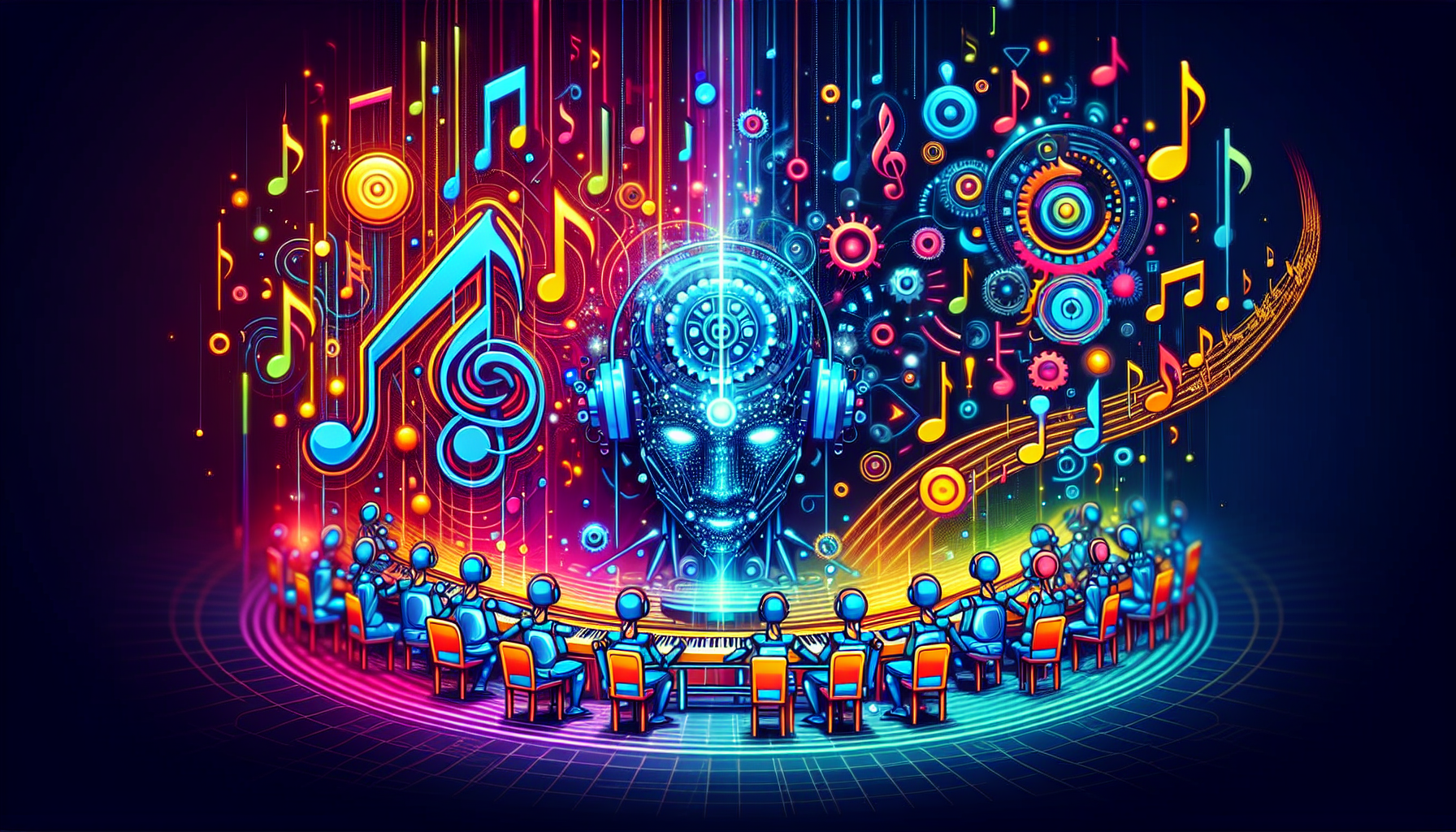
Generative AI’s Creative Capabilities
Picture this: a world where a machine can whip up a catchy tune faster than you can make a cup of coffee. Welcome to 2024, where generative AI has jazz-hand-ed its way into the music industry, creating music and mimicking artists with an efficiency that leaves human composers scratching their heads. With AI replicating artists’ voices and conjuring melodies before you can even say two seconds flat, the music creation process is dancing to a brand new beat.
As mind-blowing as this technological ballet may seem, it’s not all sunshine and synthesizers. The rapid pace at which AI can churn out tunes is raising important legal and ethical dilemmas. Copyright holders are finding themselves in a quandary over whether their masterpieces are being used as digital snacks to train AI models without so much as a by-your-leave.
Legal and Ethical Concerns
The harmony between tech and creativity starts to crack when you throw a lawsuit into the mix. In a drama set for the courtroom stage, major record labels are pointing fingers at AI startups, claiming that these digital composers are thieving human-created tunes without permission. It’s the kind of dispute that could make a reality TV show – only with more legal jargon and fewer commercial breaks.
As AI models gobble up vast swathes of online data to learn their craft, creators and rights holders are sounding the alarm. The big question on everyone’s lips? Whether using internet-shared music to train these machines falls under ‘fair use.’ Let’s just say, perspectives on this issue are as divided as a sandwich sliced by an indecisive grandmother.
Impact on Human Creators
There’s a certain irony in AI potentially stealing the spotlight from the very artists who breathe life into music. The surge in AI-generated melodies poses a zesty challenge to the status quo, causing a stir among musicians. As tech-savvy machines churn out hits, some are worried that human creativity might take a back seat, especially when AI can compose without asking for coffee breaks or royalties.
But fear not; it’s not all doom and gloom. AI is jazzing up the industry in innovative ways too. For instance, a digital resurrection of sorts, AI tech has been used to breathe new life into old masterpieces. John Lennon’s voice has been demixed, isolated, and restored for The Beatles’ latest release, showcasing that maybe, just maybe, AI and artists can strike a harmonious chord together.
The Future of AI and Music
On the flip side, the music industry is set to enjoy a crescendo in financial growth thanks to AI. Predictions show a melodious 17.2% rise in revenue, with the AI in music market projected to soar from $2.9 billion to a staggering $38.71 billion by 2033. Who knew computer-generated symphonies could be such a goldmine?
Yet despite the financial allure, content spills over as AI accelerates song production. This musical flood poses a challenge to budding artists trying to stand out from the crowd. But as the notes of change continue to play, there’s a growing call for regulations to ensure that the rights and royalties of human creators are respected amidst this cacophony. Blockchain technology is being hailed as a potential savior, promising to track usage and facilitate fair reward distributions to those still strumming guitars and tapping tambourines.






